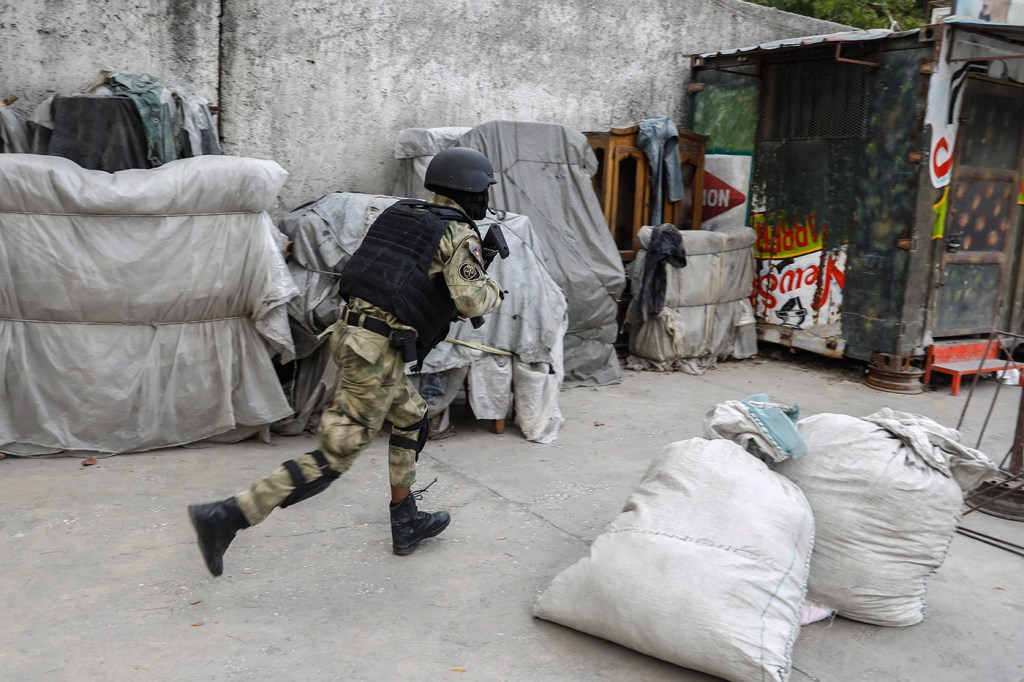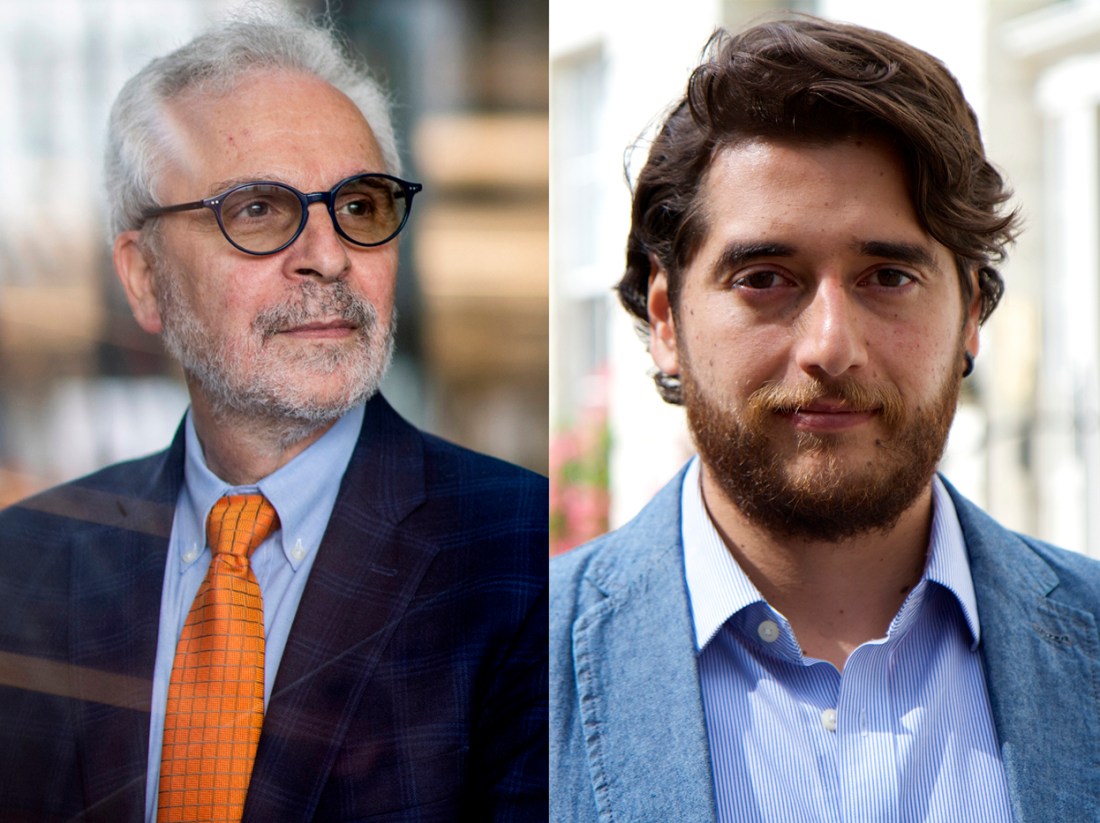Can Haiti free itself from gangs’ stranglehold?
Only strong political will of the international community and a strategic long-term plan can restore order in Haiti, a Northeastern expert says.

Haiti has been in a state of emergency after powerful criminal gangs carried out coordinated armed assaults on state institutions, including the main international airport in the capital, Port-au-Prince, and engaged in shootouts with police and military.
The gangs overran two large prisons in Port-au-Prince, freeing thousands of inmates, some of whom were imprisoned for murders, kidnappings or rape.
According to a Northeastern University expert, only strong political will by the international community and a strategic long-term plan in collaboration with locals can restore order to the country.“From the inside alone, things cannot be remedied,” says Nikos Passas, professor of criminology and criminal justice and co-director of the Institute for Security and Public Policy. “The international community does have a role and a duty actually to assist.”

The international community should be interested in combating the Haitian gangs, Passas says, because the country has become a hub for transnational trafficking of firearms and drugs, primarily destined for the U.S. as well as the Dominican Republic and Western Europe.
About 200 gangs have been terrorizing Haiti, including around 100 that control 80% of the capital, according to U.N. estimates.
The gangs not only exert political power domestically, but control access to resources such as food and water in some areas, making the local population dependent on them. They use racketeering of businesses, sexual violence, massacres, arsons, extortion and kidnappings to instill fear and accumulate power and money, according to the U.N. Office on Drugs and Crime.
At the same time, 5.2 million people out of Haiti’s 11 million population were identified by the United Nations as people in need in 2023. From 2020 to 2022, 83% of the population had uncertain access to nourishment or had gone a day or more without food.
This is what is creating migration of Haitians and refugee waves, Passas says.
“They come to our borders, but as a result of our actions or inactions or negligence,” he says.
Turning the situation in Haiti around, Passas says, will require the international community to show strong political will, dedicate a budget, come up with a long-term plan and set a timeframe.
“If you do not have these [key elements], you can go out and make statements and give loans, but it’s going to be drilling holes in the water,” he says. “No one is going to benefit from that. It’s going to be a waste of everyone’s resources.”
The international community has experience in creating legitimacy, credibility and security, he says, and it should do so without taking sides and in collaboration with Haitian people.
After Haitian President Jovenel Moïse was assassinated in July 2021, Prime Minister Ariel Henry assumed the authority as the interim head of state without the elections, Passas says, which created a lasting problem of the legitimacy of his administration. Henry is unpopular with constituents, and he has refused to hold presidential elections because of the gang violence.
Pablo Calderon-Martinez, associate professor of politics and international relations at Northeastern London, says that the violence in Haiti could have escalated after some sort of agreement or arrangement with the government broke down for some reason.
“Most governments have some tolerance of criminal activities, especially the ones that bring a lot of money,” Calderon-Martinez says.
A strong government holds all the cards, he says. The balance of power shifts when criminal organizations become so wealthy and powerful that they have endless resources or when the government becomes particularly weak like Haiti or some African countries. When gangs have better weapons and can pay better to recruit people, they can challenge a state, as happened in Mexico last year or in Ecuador this year.
Jimmy “Barbecu” Chérizier, a former police officer turned leader of an alliance of the top-nine gangs, G9, said in a video posted on social media that their goal was to oust Henry, who has been out of the country since March 1.
“The country is in a situation it can no longer cope with. The country is not run, there is no leader, the population is in famine, people can’t go out because of the insecurity,” Chérizier said.
But the gangs are not really interested in taking the governance into their own hands, Calderon-Martinez says, despite portraying their actions as done for the benefit of the people. Their priority is their illegal business and enrichment.
Featured Posts
More instability and political chaos would follow if the gangs decide to take over the government, Passas says. Their power would be contested. The armed conflict would get worse, negatively affecting businesses and infrastructure. Strained international relations and potential sanctions would drive the economy down even further.
Transformation of Haiti has to start with fixing the problem of security, Passas says, and establishing some order, possibly, with a multinational security force.
But sending foreign troops is also tricky, Calderon-Martinez says, because the G9 gangs portray themselves to be on the side of the Haitian people. A foreign intervention might unite Haitian nationals around the gangs, who pretend to represent the people of the country.
Improving the quality of the governance, Passas says, is another top priority. To create the capacity for self-governance and self-reliance, outsiders need to find local leaders, build trust and support from the Haitian people and take their priorities into account.
“People need to be confident that if they work with you, it’s not going to cost them their life or their future,” he says.
Haiti will need a new legitimate police, he says, able to control and go after gangs and their networks. There are about 9,700 active-duty police officers in Haiti, but according to the U.N., a “significant number of them” may simultaneously be members of gangs.
The police have to be overhauled, Passas says, before the authorities can start recruiting and training new people so they can be “good representatives, good citizens and good enforcers.”










